Pride
following Jesus means loving God, self, and others
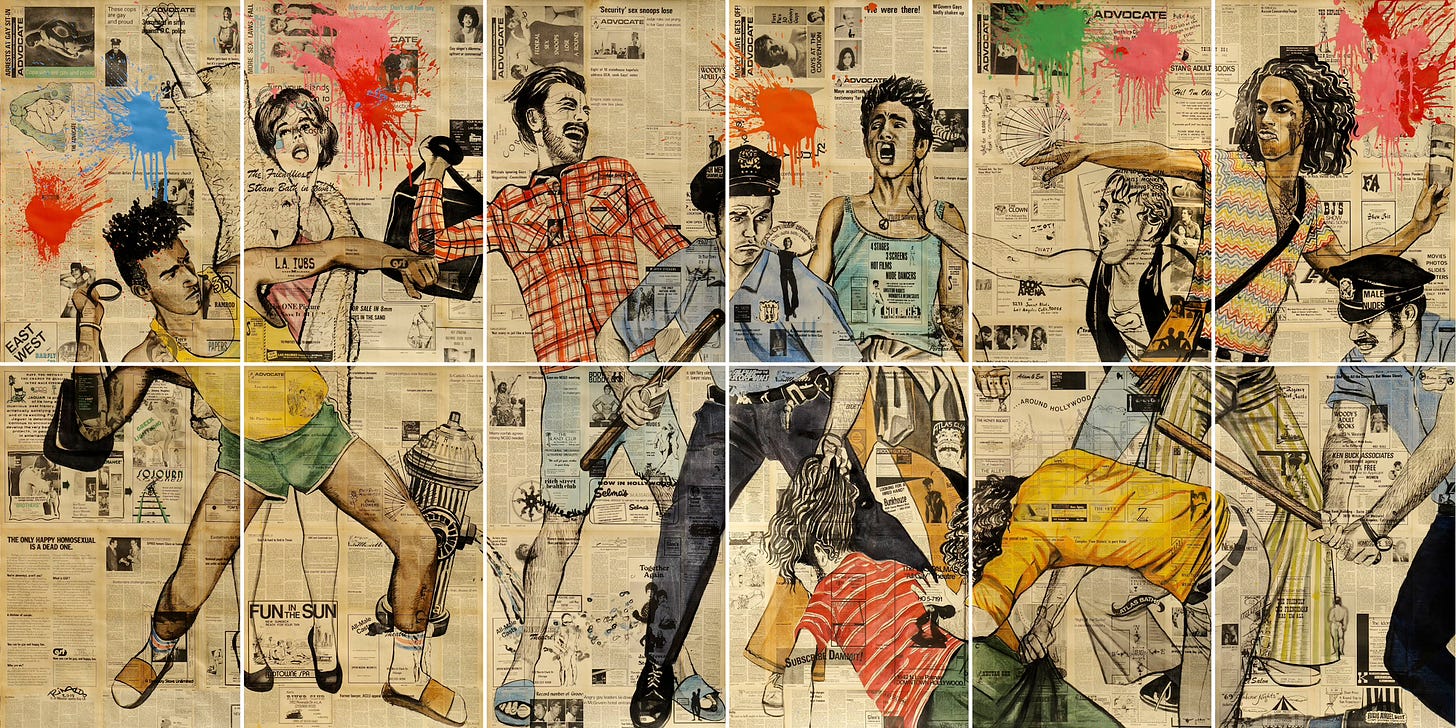
When the days drew near for Jesus to be taken up, he set his face to go to Jerusalem. And he sent messengers ahead of him. On their way they entered a village of the Samaritans to make ready for him; but they did not receive him, because his face was set toward Jerusalem. When his disciples James and John saw it, they said, "Lord, do you want us to command fire to come down from heaven and consume them?" But he turned and rebuked them. Then they went on to another village.
As they were going along the road, someone said to him, "I will follow you wherever you go." And Jesus said to him, "Foxes have holes, and birds of the air have nests; but the Son of Man has nowhere to lay his head." To another he said, "Follow me." But he said, "Lord, first let me go and bury my father." But Jesus said to him, "Let the dead bury their own dead; but as for you, go and proclaim the kingdom of God." Another said, "I will follow you, Lord; but let me first say farewell to those at my home." Jesus said to him, "No one who puts a hand to the plow and looks back is fit for the kingdom of God." (Luke 9:51-62)
What does something that happened at a bar over 55 years ago have to do with you or me, have to do with us? June is Pride month, a movement that began with a few arrests at a little-known bar at the corner of Christopher and Hudson Streets in New York City.
On June 27, 1969, at around 2:00 AM, several plain-clothed police officers entered the Stonewall Inn. They sealed the doors shut. The lights were turned up. And people were held captive by the local authorities. According to the police, they saw men dressed like women, women who acted like men and younger teens huddled in the corner, scared to be discovered for who they really were. The people in Stonewall Inn sat silently in anxiety and fear, surrounded by smoke and the smell of sweat. What was once a dark and forgotten intersection of New York City was suddenly and unexpectedly brought into the light.
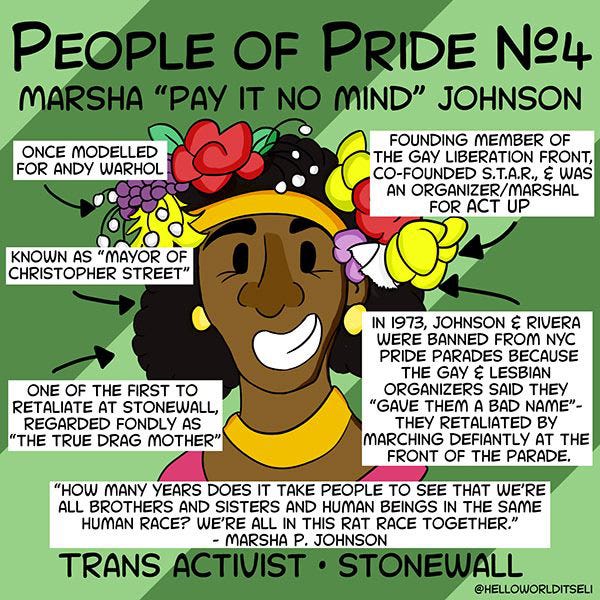
I don’t imagine I share much in common with most of the people in that bar that night. I might share one or two more things in common with some of them than most of you. I don’t know. However, how we react, what we say, and what we do as the people of God must be informed by Jesus' teachings.
We learn about empathy, are called to serve, and must walk in love. We are expected to draw close, just as God continuously draws close to us. And we must face Jerusalem to march toward death.
What must die?
Hatred? Prejudice? Greed? Entitlement?
As Jesus calls on us to “do to others as you would have them do to you,” we are invited to create, not destroy. We are not to surrender but to seek justice. We are not to remain angry but to forgive. We are not to ignore but to love. We are not to make a life for ourselves alone but to build a community that provides love and support and encouragement for all.
When we support empire that builds success and security on the backs of others, we are not building God’s kingdom. We are building a kingdom built on our own expectations, not God’s.
Our prayer is to love as God loves. Impossible but that is what we are called to do. The question is am I willing to try to live this way or not.
Our Gospel from Luke begins with, “When the days drew near for Jesus to be taken up, he set his face to go to Jerusalem.”
We encounter Jesus on the road. There is a sense of urgency. There is no time to rest. No time to bury the dead. Jesus has his face set on Jerusalem. A city of faithful people. But it is a city of death.
Jesus has a problem with this. “Jerusalem, Jerusalem, you who kill the prophets and stone those sent to you, how often I have longed to gather your children together, as a hen gathers her chicks under her wings, and you were not willing.”
We worship a God of life. A God of love. A God that calls us to love and respect the dignity of every human being. We follow Jesus on the road because we are people of accompaniment. We were loved by God first. In gratitude and in response to this love, we must love others.
The parables of Jesus teach us that relationships are complicated and that people have different gifts, thoughts, beliefs, and experiences, which make each and every one of us fearfully and wonderfully made.
We are called to be. To judge not. To fear not. To hate not.
To be.
Accompaniment is not easy. Jesus realizes that there is always something else to distract us. Something else demanding our attention.
“I love you, Jesus, but…”
“I want to follow you, Jesus, but today I must…”
“I want to love like Jesus, however, work demands…”
“I’ll change tomorrow, but today I must…
Jesus’ face was turned towards Jerusalem, a city on the hill that was supposed to be a light to the nations. But the city had failed the people who lived there in many ways.
James Baldwin once said, “Not everything that is faced can be changed, but nothing can be changed until it is faced.”
Stephanie Spellers, in her book The Church Cracked Open: Disruption, Decline, and New Hope for Beloved Community, says, “Especially now, even as the powers of empire and established order are busy reassembling the cracked pieces with… the same self-centric powers and goals at their core, we should be striving and praying that God will reshape us in the image of God’s beloved community. If not now, when?”
Stephanie points out, as we accompany Jesus, as we walk with each other on the road, our mission is to build a beloved community, where we together “imagine a better world, one where human beings release our grip on safety and prosperity, sacrifice for the sake of each other’s flourishing, share one another’s burdens, and live more like children made in the image of our unselfishly, extravagantly loving God.”
Is it too late?
No.
Is there a sense of urgency?
Yes.
According to Aretha Franklin’s biography, Aretha: From These Roots, “Respect” was recorded on Valentine’s Day, 1967. “Respect” was a demand for dignity. Some heard the song as the anthem for the Civil Rights movement. Others interpreted it as the battle cry for feminism. The other initials heard in “Respect” are “T.C.B.” which means “taking care of business.”
Aretha said, “It was the need of the nation, the need of the average man and woman in the street, the businessman, the mother, the fireman, the teacher —everyone wanted respect.”
But we easily turn our heads away from our ability to grant basic human dignity.
As we turn our faces toward Jerusalem, doubt, insecurity, and anxiety find their way into consciousness. Paralysis sets in. Feelings of insecurity, unworthiness, and darkness lead to an abyss. This is evil.
But Paul reminds us, “What is sown is perishable, what is raised is imperishable. It is sown in dishonor, it is raised in glory. It is sown in weakness, it is raised in power. It is sown a physical body, it is raised a spiritual body.
This is God’s way. It is not the way of Empire. It is the way of the Church. It is the work of Faith. It is the vocation of the Christian community.
I want to follow Jesus, accompany the people of God, and love the world and God’s creation. But the amount of hate and judgment, including mine, is pulling me away. I am angry and disappointed. Rights stolen. Access denied. Dignity and choice taken away. The recent goings-on suggest that we, as citizens of the United States, believe that others’ experiences, lives, and choices are invalid. This is not God’s way, and it certainly was not what Jesus taught.
We are no longer willing to accept people as they are. We see Christians who believe some are blessed and others are not, and that that is how God intended it. Discrimination, fed by entitlement and privilege, is a slippery slope into pure evil.
“You are not like me. I have determined you are not of God. Therefore, I am entitled to dismiss you, discriminate against you, and humiliate you.”
Many stood around Jesus on Calvary, laughing and taunting, daring to enjoy the violence inflicted upon the other, ultimately losing their souls to evil.
Matthew Shepard was beaten, bound and gagged, tied to a fence, and left to die because he was gay. At the sentencing of Matthew’s killers, Matthew’s father, Dennis Shepard, said, “My son died on the outskirts of Laramie, tied to a fence… But he was not alone. There were his lifelong friends with him, friends that he had grown up with. He had the beautiful night sky and the same stars and moon we used to see through a telescope. Then he had the daylight and the sun to shine on him. And through it all, he was breathing in the scent of the pine trees from the snowy range. He heard the wind, the ever-present Wyoming wind for the last time. He had one more friend with him. He had God. And I feel better, knowing he wasn't alone.”
This is a baptism of death; death to everything I think I know or believe, making way for God’s expectations to reside within my heart and spirit.
God’s expectations are way different than the world’s expectations. God’s expectations are different from the expectations of my my family and friends. God’s expectations are definitely different from my own expectations. And this is where the challenge of living into Jesus’ way of living begins. Wading through all these discordant expectations is difficult, nearly impossible to do in a world that feels as if it is demanding so much.
Reconciling and managing these expectations is the work of discipleship. Navigating and searching for meaning is the work of faith which defines vocation. My vocation; what am I supposed to do?
For an oppressed people, for a nation suffering under the grip of trauma and abuse, it becomes difficult to remember the good news of Jesus Christ. How we are supposed to live like this Jesus? Do you work where I work? Do you live where I live? Have you met my family?
Are you in touch with the reality of my life Jesus?
In her book Inspired: Slaying Giants, Walking on Water and Loving the Bible Again, Rachel Held Evans shares, “It’s easy for modern-day readers to forget that the Bible was written by oppressed religious minorities living under the heels of powerful nation-states known for their extravagant wealth and violence. For the authors of the Old Testament, it was the Egyptian, Assyrian, Babylonian, Greek, and Persian Empires. For the authors of the New Testament, it was, of course, the massive Roman Empire. These various superpowers, which inflicted centuries of suffering upon the Jews and other conquered populations, became collectively known among the people of God as Babylon.”
Rachel suggests that our faith is born out of experiences of suffering, trauma, and oppression. This context gives us a glimpse of a God, who is calling us to organize communities of worship grounded in prayer, resistance, and persistence.
The government of the United States told Edie Windsor that God was not present in the love shared between her and her partner, Thea Spyer. When Edith’s partner of 47 years died, she sought to claim the federal estate tax exemption for surviving spouses. She was barred from doing so by Section 3 of the Defense of Marriage Act, which provided that the term "spouse" only applied to marriages between a man and a woman. In grief and loss, Windsor sought federal recognition of her relationship of 47 years. The Supreme Court ruled in her favor, and this federal ruling set in motion the redefinition of marriage within the federal government. Happy Heavenly Pride Thea and Edie.
Today, we celebrate Pride, a movement that began with a few arrests at a little-known bar at the corner of Christopher and Hudson Streets in New York City.
On June 27, 1969, things at the Stonewall Inn began to deteriorate. As the patrons were told to get in a single file, one by one, their IDs were checked, their names were recorded, and their addresses were noted for future reference. This is when things got rough. As one woman emerged from the bar, the police rushed her. She was putting her id back in her pocket. The police claimed she was reaching for a gun. They had just checked her id. They knew what she was doing. She resisted arrest. A policeman bodily heaved her into the backseat of a police vehicle.
The crowds got angrier. Passers-by began to gather. They knew who hung out at this bar. But they were surprised by the blunt brutality being exhibited by the police. “What is going on here?” they wondered.
A young boy, maybe 14, was tossed through the front doors. He crashed to the ground, his face skidding across the pavement.
It was then that the crowd began to attack the police. Anger erupted. Suddenly, the police, trying to clear out the Stonewall Inn, bolted themselves inside for protection.
The rest is history.
From the bar to the streets, beyond the city limits, to fields of grain, from the beauty of a marriage ceremony to the steps of the Supreme Court, Jesus invites the baptized to go in peace to love and serve.
At Baptism, we are asked, “Will you seek and serve Christ in all persons, loving your neighbor as yourself? Will you strive for justice and peace among all people, and respect the dignity of every human being?” We answer, “I will with God’s help.”
I always respond with a little trepidation. Can I love? Can I respect? What will I be asked to do? What does Christ expect from me?
We cannot wait for tomorrow. We cannot become overwhelmed with despair and hopelessness. We must focus. We must set our sights on Jerusalem. We must act. Let the dead bury their dead. Today, I must stand with the living.
What is your head set on?
We are asked to accompany Edith Windsor, proclaiming God has come near and that through your love for Thea we get a glimpse of God’s love for us. We are asked to accompany Dennis Shepherd in grief, as he recalls his son Matthew, tied to a fence at the edge of the cornfields in Laramie, Wyoming, gently whispering in his ear, at the brink of death that he is not alone and neither or we.
Jesus walks with us.
We are asked to walk into a bar where men are dressed like women, and women act like men and say to those who barge in and hold us captive, we welcome you as God welcomes us, and whoever welcomes us, welcomes the God who created us.
Michelangelo Signorile, Act Up! activist and political commentator, in his book, It's Not Over: Getting Beyond Tolerance, Defeating Homophobia, and Winning True Equality, says, “The victory narrative seduces us,… to pull back just when we’re beginning to win, in fear of taking further risks. (This) demand draws too many of us in, as our enemies put us on the defensive when we must remain vigilant and constantly on the offensive in attaining civil rights. That means being vocal, organizing at the grass roots, and collectively demanding action.”
We are on the road with Jesus, our faces set towards Jerusalem. We are walking together.
Rachel Held Evans, in her book Inspired, reminds us that, even when we fail, when we don’t measure up, “The story isn’t over; even the greatest empires are no match for goodness, righteousness, and justice. It might not look like it now, but the Resistance is winning. Fairy tales are more than true: not because they tell us that dragons exist, but because they tell us that dragons can be defeated.”
Even our own.
Happy Pride!



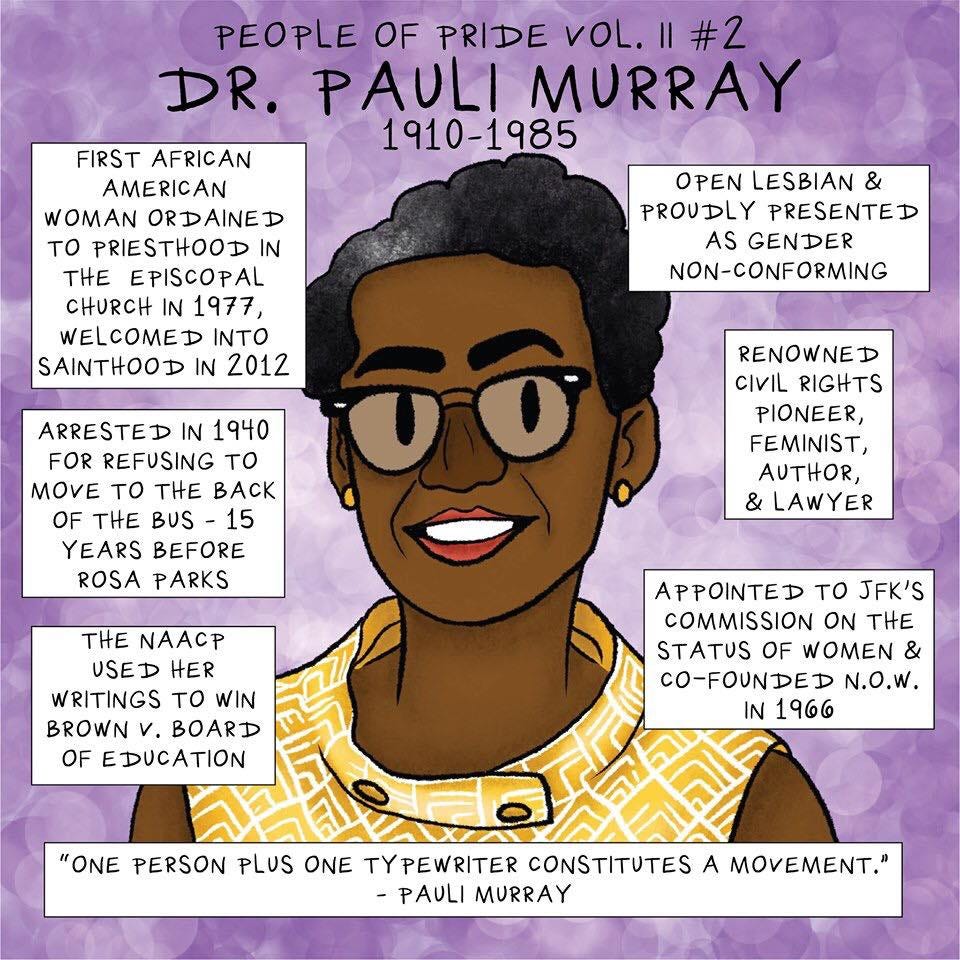
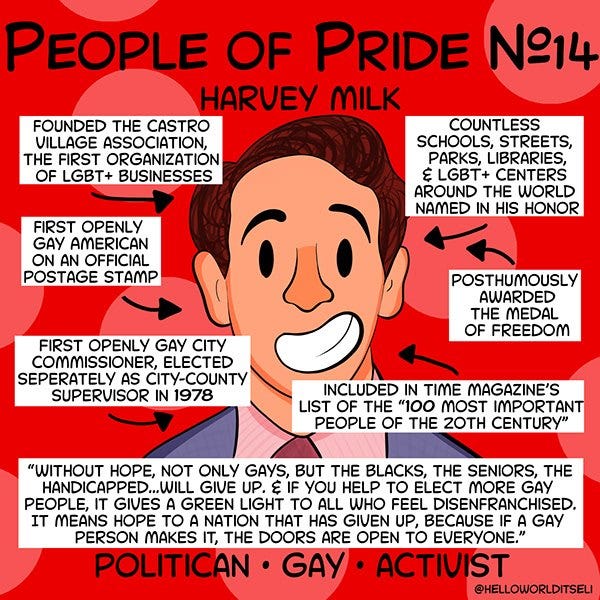



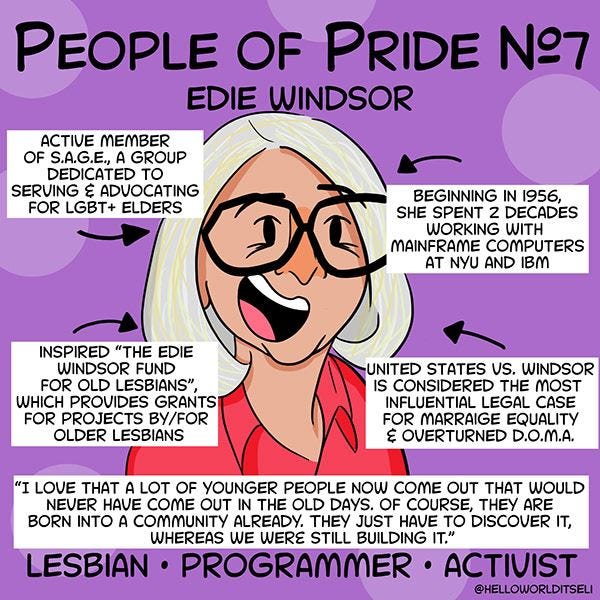
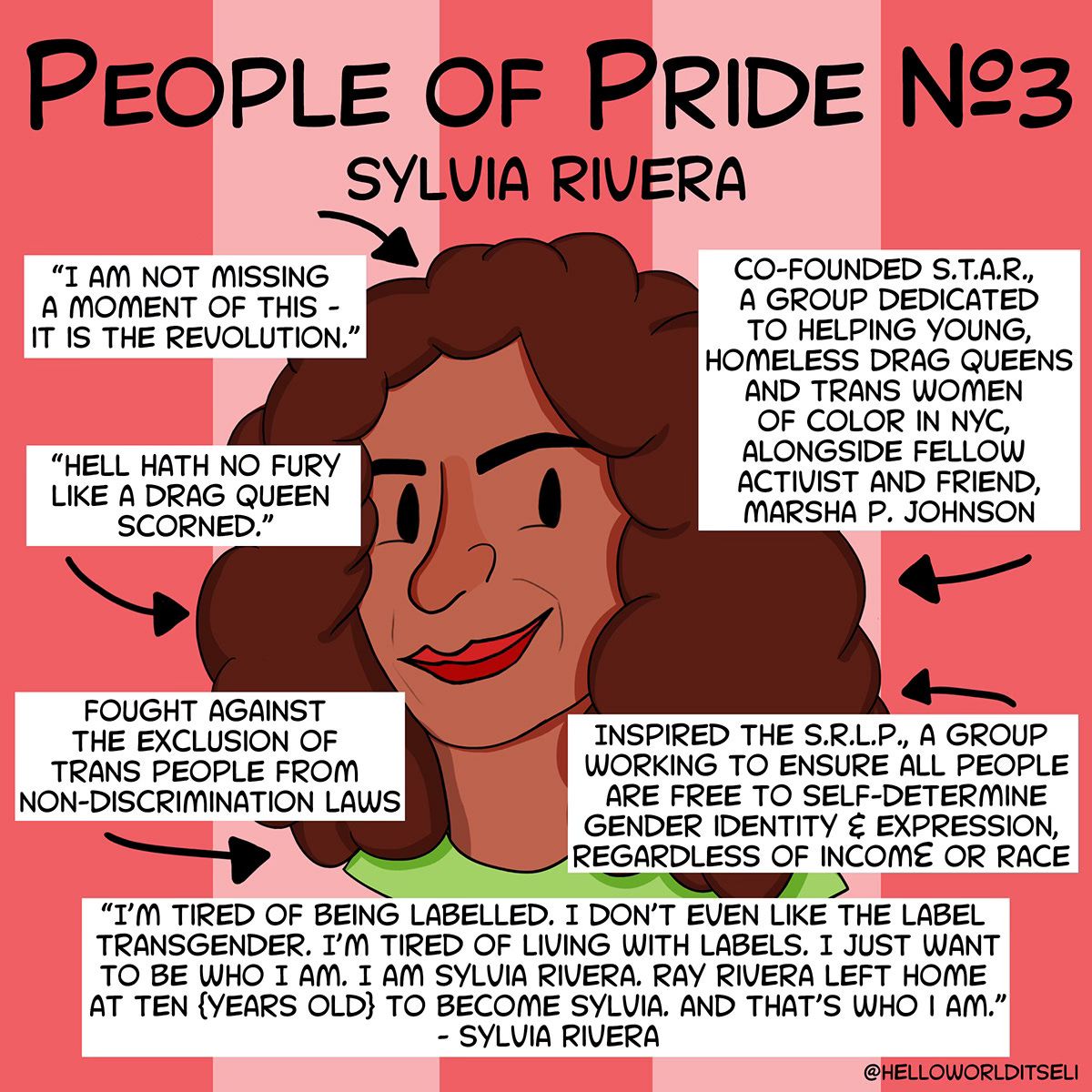
I love this: we are people of accompaniment. An “aha” moment for me.